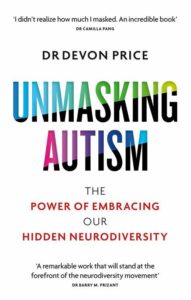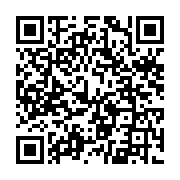
“Everyone seems to be autistic or have ADHD these days.” Medical providers throughout hospital corridors have often echoed this sentiment during my clinical rotations in medical school. As someone who persevered through masking my neurodivergent nature while rising to the challenges of medical school, it was heartbreaking to hear such opinions that undermine the lived experiences of neurodivergent individuals. The harm caused by judgmental beliefs like the one just quoted is the reason I had to mask in the first place.
‘Unmasking’ is a term given to the process in which a neurodivergent individual aims to shed learned behaviors of social compliance to reduce stress and live an overall healthier life while growing as a self-advocate. In the process of trying to unmask and act in ways that feel safe and healthy for my neurodivergent mind, I’ve encountered a disappointing number of individuals who attempt to invalidate my experience, insisting it’s impossible for me to have ADHD or Autism and still have made it this far academically. With surprising confidence and certainty, people repeat phrases like, “It seems like everyone thinks they are neurodivergent,” “People diagnose autism too much,” “I guess people don’t want to take responsibility for their laziness,” or the especially dismissive quip “You must just be depressed.” The ableist narratives expressed in statements like these make it harder for neurodivergent people to advocate for their needs because their neurodivergent identity doesn’t fit into the defined boxes created by the DSM-5.
According to the DSM-5, Autism Spectrum Disorder (ASD) is characterized by persistent ‘deficits’ in social communication and interaction across multiple contexts, including deficits in social reciprocity, nonverbal communicative behaviors, and developing, maintaining, and understanding relationships. Additionally, individuals with ASD exhibit restricted, repetitive patterns of behavior, interests, or activities manifested by at least two of the following: stereotyped movements or speech, insistence on sameness, highly restricted interests, and hyper- or hypo-reactivity to sensory input. Symptoms must be present in the early developmental period, cause significant impairment in social, occupational, or other important areas of functioning, and cannot be better explained by intellectual disability or global developmental delay.
However, it is important to consider the historical and social context in which clinicians and researchers developed this diagnostic lens. They formulated this definition based on years of research that assumes that ASD occurs in one specific demographic: white male children. People across different cultural and gender identities are not properly represented in research on ASD, which means the rigid criteria established under-identifies ASD in people who do not fit the ‘typical’ clinical presentation. Relying only on established diagnostic frameworks as anchoring biases, an ‘atypical’ presentation may delay or outright circumvent a diagnosis that could otherwise initiate helpful interventions, such as extra academic or assistive communication support, that maximize quality of life and autonomy for the Autistic person. This diagnostic dilemma and other challenges masked and undiagnosed Autistic individuals face are described in Dr. Devon Price’s Unmasking Autism.
Unmasking Autism by Dr. Devon Price is an insightful and transformative exploration into the lives of Autistic individuals who have spent their lives masking their true selves to fit societal norms. Drawing from personal experience and extensive research, Price sheds light on the profound impact of this masking on mental health and overall well-being. The book delves into the reasons behind this phenomenon, the challenges and risks it poses, and the journey towards embracing one’s authentic identity. Through compelling narratives and practical advice, Price offers a compassionate guide for Autistic people seeking to unmask and for allies looking to support them. Unmasking Autism is a powerful call for acceptance and understanding, making it an essential read for anyone interested in neurodiversity and mental health. Medical students who are Autistic, neurodivergent, or who want to gain perspective as an ally will find Price’s narratives on the setbacks and triumphs toward a life lived free to be oneself compelling.
This book validated my lived experiences, shed some light on how the definition of Autism is evolving rather than fixed, and drew attention to how far our society is from accommodating Autism and accepting Autistic individuals as they are. Autism is not an illness; it is a value-neutral and pervasive difference in how one’s mind processes the world. Autistic people cannot be separated from their unique minds by behaviorism, social pressure, or medical intervention, and anyone who aims to support them must stop pathologizing minds that function outside of typicality simply because accepting them might be inconvenient within the state of the world as it is. Accepting neurodivergence in day-to-day life as well as in academia creates space for out-of-the-box thinking, encourages a more inclusive world for people across the disability and chronic illness spectrum, and teaches us to challenge the ‘norms’ within our world. As a neurodivergent medical student, I encourage everyone to read this book to expand their understanding of neurodivergence and be a part of a movement that increases inclusivity and emphasizes the intrinsic value of others regardless of their differences.
If you are interested in purchasing this book, you may use the following associate link to do so: https://amzn.to/4cAc9Vs *
As an Amazon Associate, we earn from qualifying purchases. When you buy from our links, we earn commission.
